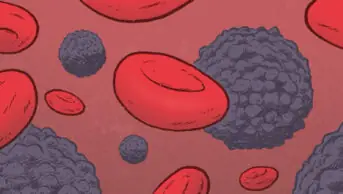I enjoyed Andrew Haynes’s review of the BBC4 programme ‘Pain, pus and poison’ (PJ 2013;291:401) and I also enjoyed the programme. It seemed to me to be all about pharmacy and to include a significant portion of pharmacy’s most exciting bits, its highlights and its “wows”. I also loved the old glass-stoppered bottles, extemporaneous compounding and early industrial manufacture. It was great to witness some prominence given to the pharmaceutical industry. The whole effect was to make me proud to have been a pharmacist.
What disappointed was that, although the Royal Pharmaceutical Society and pharmacists had some presence, a pharmacist did not “front” that programme. Why, I wondered, did a doctor, Michael Mosley, star instead? We have had a pharmacist star (Nick Barber) in the splendid series “Victorian pharmacy”, so the precedent has been set.
One answer may be the comparative sizes of UK registers. There are about 240,000 medical practitioners versus about 47,000 pharmacists. But that felt like an excuse because this programme was mainly about pharmacy; pharmacy is mainly about pharmacy while medicine is not mainly about pharmacy.
I speculated that pharmacy, compared with medicine, was so empirically fact dense that presenting pharmacists were socialised just to deliver facts, such as to cover the syllabus. Put differently, pharmacists were so obsessed with the “egg” (nutritious contents) that they undervalued its delivery: its presentation (the “shell”). Both are needed. Fee-paying punters do want “facts”. But viewers also want entertainment. The programmes bore the Open University imprimatur; that ensured that the two aspects were balanced. I suspect that pharmacists lag behind doctors in presentation skills.
I am sure that many pharmacists are as personable as Dr Mosley. Centuries of patient-facing, demand-driven service have evolved and polished that. It gives me no pleasure to admit this but in pharmacy we appear to project “this is a charisma-free zone”. Universities now produce large numbers of pharmacy graduates. I do hope that some golden polymaths will also pursue academic media studies, drama and so on and that at least one, or some individual possessing panache from our existing Register, will go “cluck cluck” and seriously start to lay a series of pharmacy’s golden media eggs. That individual would do pharmacy much good.
Malcolm E. Brown
Beccles, Suffolk


